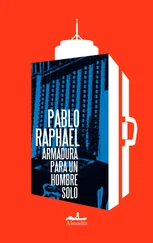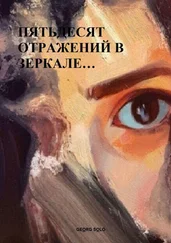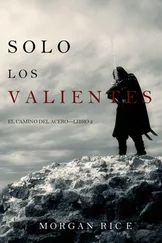Somewhere, Ulrich still has a photograph from the day when the new reactor was installed. An official from the ministry came to inaugurate the new machinery, and a photograph was taken to commemorate the occasion. Ulrich is in a row with four other men, all in slightly irregular suits, standing awkwardly because of the strong wind. Five shadows with ballooning trousers stretch behind them on the concrete.
When the economic impact of the new process became apparent, Ulrich was singled out for considerable felicitation. Comrade Denov presented him with a gold watch in front of all the workers, and a medal embossed with the heads of Lenin and Zhivkov. He said,
‘If ever a man has given his love to a factory, it must be him.’
Ulrich was asked to go to the studios of Radio Sofia to record an interview with a smiling official from the Internal Information Department. The man asked him how he came to think of installing this new reactor, how he felt about the astonishing improvements in productivity, what these would mean for the Bulgarian people, and why he was inspired to work so tirelessly and selflessly for the nation.
The interview was broadcast in the evening, and several of Ulrich’s colleagues, including Comrade Denov, came to his house to listen. They broke into applause when his name was mentioned, and gazed at each other in awe as the details of their small universe were broadcast to the nation. The programme called Ulrich an ‘ordinary hero’.
Comrade Denov congratulated Ulrich’s mother, and said she must be very proud. She held her vodka close, and smiled.
The photograph of the inauguration of the new reactors was displayed on Ulrich’s wall for many years, next to the photograph of Einstein with his violin. In the background of the photograph was the concrete water tower that once supplied the small town.
Shortly after the photograph was taken, this tower collapsed, without any warning. Ulrich remembers arriving at work the next morning, and seeing the entire town flooded. The savagery of the debacle rendered everyone speechless, and all they could do was stare. It took days to pump the water out of the mine.
Ulrich recalls that as he stood with the crowds at the edge of the water, he was intensely moved by this mysterious eruption of latent forces. To this day, he wishes it could be given to him again to set eyes on that spectacle.
20
ELIZAVETA ASKED HIM to get her a typewriter, and he brought home a cast-off from the factory that she banged on night and day. For years he woke up to that sound, but he did not ask her what she was writing.
She opened and closed her mouth in those years, and sound came out, but Ulrich paid little attention. She wept in the house, and complained about her life, and Ulrich withdrew into his thoughts.
He became subject to obsessions.
Todor Zhivkov announced that he would build the biggest steel combine anywhere in the Balkans, and Ulrich was preoccupied with it for years.
‘The Germans wanted to make steel here, during the war,’ he ranted to anyone who would listen. ‘But they couldn’t make it from Bulgarian ore. Our ore is of the lowest grade. Has the government not done any research? Do they not realise?’
He wrote letters to the newspapers and the ministry, laying out his arguments in a numbered list. As soon as these arguments were seen and acknowledged, he felt, this vast and foolish project would be abandoned immediately.
But no one took any notice. The Gypsy labour gangs still laboured on the site, and, after three years of construction, the vast Kremikovtsi Steel Works were opened near Sofia. Songs and poems were composed to the factory, and special coins were issued with a heroic engraving of it, but it was never able to squeeze any steel out of Bulgarian ore. They had to import the ore from Russia to keep the works going.
‘They built one of the most expensive factories in the entire Soviet bloc,’ Ulrich said to Comrade Denov, ‘on the basis of an ore they could not use. Where is the logic?’
‘Perhaps the logic was simply to build one of the most expensive factories in the Soviet bloc. Here in Bulgaria.’
Ulrich looked at him, appalled.
‘But no one could do such a thing. It’s completely unscientific. It’s impossible to believe.’
And he never stopped going back over the story, telling people how he had warned the government about it before the factory even opened, and they had taken no notice.
He used to dream, in those days, of his mother’s death, which also seemed to happen in a factory.
The machines churn, and he sees her suspended in the glowing tunnel: the burning sparks coming off her, and her limp head thrown side to side in the force field, some last animal reserves keeping her righted, head-on to the slipstream, before the vibrations become too violent to withstand, and suddenly the turbulence catches her, the roar lets up, and he sees her whole for the last time, jackknifing, white hot, flipping like a rag doll, and then there is a giant shower as she explodes, slow motion, among the stars, and bright lights disperse into the endless silence, from whose remoteness the thunder will take years to arrive.
When Ulrich awoke from this dream he would come down and find his mother already banging at the typewriter, and feel relieved that nothing had happened to her. But he still did not ask her what she was writing. He had a suspicion it was her memoir of the camp, because he knew she carried heavy things inside her that she had not told, and he had made it clear that he would never hear them.
When Sviatoslav Richter, the great Soviet pianist, came to play a week of recitals in Sofia, Elizaveta begged Ulrich to take her to hear him. Richter was a wild-looking man, even in his suit, and he tamed the piano monster with the mere application of his fingertips. Ulrich was terrified to see the speed at which he played Chopin, for no one could sustain such a fury. When he finished it with such a contemptuous flourish, the tears ran down Ulrich’s face.
It was the period when he had strong physical reactions if he witnessed some form of surpassing human achievement. He wept at athletes breaking records. He trembled when he saw a standing ovation in the theatre. When Albert Einstein died, he read his words in the newspaper, which made him weep too:
The years of anxious searching in the dark for a truth that one feels but cannot express, the intense desire and the alternations of confidence and misgiving, and the final emergence into light — only those who have experienced it can appreciate it.
At the time of Richter’s visit, there was an influenza epidemic in Sofia, and Elizaveta was one of those who coughed uncontrollably through the music. Her nose ran continually, and her constant wiping irritated Ulrich during the performance.
Many years later, after her death, Ulrich heard a recording of those recitals on the radio, and he could identify his mother’s cough, preserved during the long note that Richter held at the beginning of ‘Catacombs’, near the end of Mussorgsky’s Pictures at an Exhibition .
He can remember attending a funeral. It was his father’s sister, who was over ninety. The blue veins around her face were sunk in skin like candle wax, her closed eyelids were violet at the edges. There were red carnations all around.
After the coffin was lowered into the ground, the mourners walked slowly to the rented hall, old relatives on many arms. The day was bright and cold, and their breath clouded in the air. The stinging air transported the smell of mothballs rising from their clothes. Newly fallen oak leaves crackled, and a track of solid footprints was pressed in the frost. At the graveside, the funeral band packed up their instruments.
Читать дальше
Конец ознакомительного отрывка
Купить книгу












